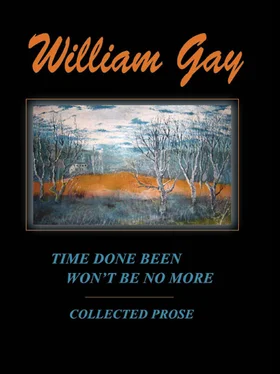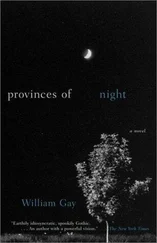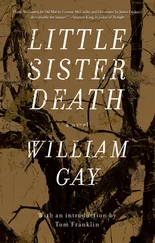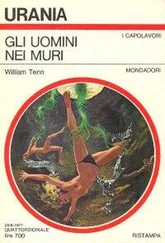These were also the days when audiences demanded showmanship. They’d come to be entertained, to be taken out of the ordinariness of their lives for the duration of the show, and they would settle for nothing less. Style weighed as heavily as content. Incertitude rang hollow, and mediocre showmen didn’t last too long. Dave saw a lot of rehearsals, and he was soaking up influences from all of them.
About this time a circus turned up in Nashville and pitched its tents in a vacant field. There Macon saw a comedian banjoist named Joel Davidson. The experience must have been revelatory, for Macon himself later wrote, in the often overblown language of the times:
It was Joel Davidson who proved to be the spirit that touched the mainspring of the talent that inspired Uncle Dave to make his wishes known to his dear old mother and she gave him the money to purchase his first banjo .
By 1887 all this had changed by a pocket knife: Macon’s father lay dead in a street altercation and the trial ended in an acquittal for the assailant. Soon the family had abandoned Nashville and the widow Macon headed them for Readyville, a town between McMinnville and Murfreesboro where there was a waystation for stage coaches. She figured that travelers would always need food and a place to sleep. Essentially, they were still in the hotel business.
It is probably here that the idea of becoming a professional musician first entered young Dave’s mind, for he built a makeshift stage atop a barn from which he could give impromptu shows for the travelers who were staying over. One can imagine this: A teenage boy with his open backed banjo and apparently boundless confidence, the end of the day and a skeptical crowd, Dave up there in the falling dark tuning his banjo while the nighthawks dart and check, the audience gauging him and Dave gauging them right back, trying to figure what will work and what won’t for an embryonic repertoire he doesn’t even know he needs yet.
All this time he kept learning songs, collecting them, writing them, stealing them. He also developed a distinctive introductory roll, almost like an invitation, a quiet caesura before the action starts, a musical hand gesturing you inside the song where the story commences, that would kick off most of his later songs.
At the age of twenty-nine, Dave married Matilda Richardson, who over the next twenty years would bear him seven sons. In 1900, with a child on the way, he looked about for a way to make a living. Ever a mule man, he went into the freight business. With a double team of mules, he hauled wagonloads of provisions and building materials and whiskey into towns the railroads did not accommodate. He was barely ahead of the internal combustion engine, but he wasn’t put off by its arrival. He didn’t trust the horseless carriage and he didn’t expect it to last. In From Earth to Heaven, a song he wrote about the freight business, he sings: I’ll bet a hundred dollars to a half a ginger cake/I’ll be here when the trucks is gone.
When he became a more prolific writer of protest songs, this was a theme he returned to again and again: Change is not always for the better, and change for the sake of change is never better. He seems like an early agrarian or one of Robert Penn Warren’s Fugitives, trying to hold on to a mythic South that had been slipping through Southern fingers ever since the War. He believed in flesh and blood. He had more faith in a beast of burden he could talk to rather than some mechanical contrivance that would not do his bidding. In days to come he would own cars and even write a paean to Henry Ford’s invention, but he never learned to drive one and he was always a little surprised when they performed as they were supposed to.
Now here’s a stop on the road that doesn’t exist anymore. Fiddlin’ John Carson had a Victrola record released that sold way beyond expectations. It was the first country-music hit. Folks scraped up the money to buy it and hoped later they could scrape up the money to buy a phonograph to play it on. It seemed an occasion of country people embracing one of their own who’d in some manner made good and transcended them but managed to keep intact the roots they held in common.
The record companies were amazed, but they were not stupid. They began to look around for other rural musicians.
Records were largely a sideline then, carried in furniture stores rather than music shops. The Sterchi brothers owned a chain of furniture stores that carried a line of Vocalion recordings. Dave had hauled a lot of furniture, and by now he was the best-known musician in the region. He’d been performing informally (one can’t imagine a formal performance by Uncle Dave Macon) for years at dances and private parties or wherever anybody wanted to hear a banjo played. He even had a partner now, a young man named Sid Harkreader who played guitar and fiddle and sang harmony with him. So when Vocalion asked the Sterchi brothers to help line up new talent, the first name out of the hat was Dave Macon’s.
It must have been a potent moment: He’d been making music for free all his life and now he had the chance to perhaps get paid for it and lay everything else aside. But he was already fifty-three years old, a little late in life to be changing careers. But there seemed little choice. The freight business he knew had been supplanted by automobiles and he still had children at home to feed. He signed with Vicalion and headed for New York, not knowing that he was blazing a trail that countless musicians would follow: Jimmie Rodgers and the Carter Family, Dock Boggs and Mississippi John Hurt, plus scores of others whose epitaphs are just names on old phonograph records.
His first recording was Keep My Skillet Good and Greasy, a song that in later years he would say he learned from a black man named Tom Davis, but history has forgotten Davis’s story and no one knows where he learned it or how close to the original (if such a thing exists) Macon’s version is. By making it his first record, Macon must have considered it his best shot at launching a new career and it is a song he returned to again and again and recorded numerous times, as if striving toward some ideal of musical perfection.
All the versions have the same feel of not only lost landscapes and lost times but a lost people, a race supplanted. The banjo rolls hollowly out and it seems to be coming from some place enormously distant, from some alternate world outside time itself, and the voice when it comes, conspiratorial and amused, jerks you abruptly into a plot that’s already started: There’s stolen meat in your knapsack, hounds on your track, and you’re pulling for your shanty home where Mandy is waiting. The song is all motion and action, there’s no time for rationalization or introspection but, above all, it is so caught up in the joy of life that everything else seems incidental.
In this song and in songs like Way Down the Old Plank Road and Buddy Won’t You Roll Down the Line (both included by Harry Smith, no slouch in taste, on his Anthology of American Folk Music ), the music creates a visceral three-dimensional world then draws you in to a time that doesn’t exist anymore but stills feels prescient. Times and circumstances alter, the music says, but the eternal human frailties and verities remain the same. There’s always that sense of being vividly alive. In Way Down the Old Plank Road, the feeling of desperate abandon when Macon cries KILL YOURSELF! sounds as if the words could be either a command or a mental note to himself. Hard times or good times, there is a stoic, dark-humored core that seems to render qualifiers or modifiers irrelevant. It is not the good times or the bad times that matter but the experience of living itself.
The reaction to these first recordings was immediate. There seemed to have been an audience already poised and waiting on Uncle Dave, and all that was needed was this connection to bind them together.
Читать дальше












